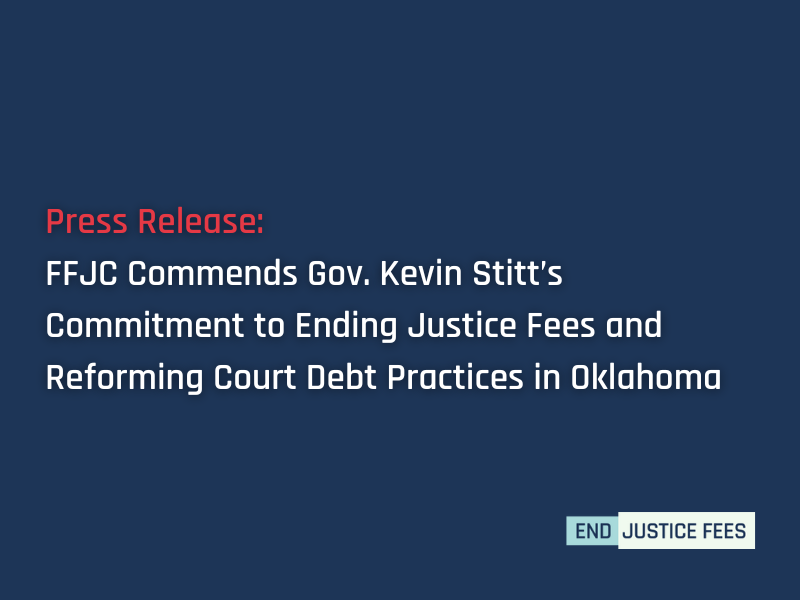By Chief James Small (police chief and public safety director of Palmyra, Wisconsin) and Joanna Weiss, co-director of the Fines and Fees Justice Center.
Effective law enforcement depends on strong relationships within the community. It requires officers who act as problem-solvers rather than punishers. But when police are forced to take responsibility for balancing municipal budgets, it turns communities into commodities and makes communities bitter rather than better.
A bombshell investigative series in February revealed how police in Brookside, Alabama were preying on drivers by excessively issuing traffic tickets to pay their salaries has rapidly provoked a rapid succession of changes in the town of 1,200.
In the span of a few weeks, Brookside — which makes more annual arrests than it has residents and funds nearly 50% of its budget with fines and fees — faced a state audit and a flurry of lawsuits. The police chief and his deputy resigned, followed by the introduction of an interim chief promising to rebuild community trust.
While Brookside is an extreme example, it underscores how policing-for-profit has become deeply entrenched across the United States in recent decades. Fines and forfeitures account for more than 10% of general fund revenues for nearly 600 jurisdictions. Places whose residents can least afford it are the worst offenders — jurisdictions where fines accounted for over 20% of general fund revenues had median household incomes under $40,000.
As states and localities have dramatically increased fines and fees on residents, it has worsened long-standing economic inequities. When someone can’t afford to immediately pay a ticket, they get trapped in a cycle of poverty and punishment — leading to additional fees, interest charges, driver’s license suspension and even arrest and jail.
The village of Palmyra, Wisconsin (where one of us has served as police chief since 2015) presents a stark contrast to this. This town of 1,700 people has shown how Brookside and other municipalities can end policing-for-profit — all while drastically lowering crime and improving public safety.
How did Palmyra pull off this feat? Its officers were directed to focus on behavior change and outcomes, rather than generating revenue.
Since 2014, Palmyra has reduced ticket fines assessed from over $90,000 a year to under $30,000. Meanwhile, Palmyra’s property crime rate has decreased by over 80%.
While police quotas are technically illegal in Wisconsin and many other jurisdictions, de facto quotas are widespread virtually everywhere. In Palmyra, by contrast, officers are not evaluated based on how many tickets they write. Equally important, the police budget is now completely independent of how much revenue is raised through fines and fees.
Policing-for-Profit is Counterproductive
Relying on tickets to fund government is counterproductive to public safety. In fact, policing-for-profit is a wager against public safety because to raise revenue you need more crime.
One study found that nearly 50% of residents who owed criminal justice debt were jailed because they couldn’t keep up with their payments. Many made desperate choices: 83% had to forego basic needs like rent, utilities or medicine; 44% took out a high-interest loan; and 38% turned to crime to get the money they needed.
Turning law enforcement into armed debt collectors further erodes the trust between community and law enforcement. Nationally, a 1% increase in the share of revenues from fines, fees and forfeitures collected by municipalities is associated with a 6.1% decrease in the violent crime clearance rate.
Taxation-by-citation isn’t just bad public safety policy, it’s also bad economic policy. Once all the government’s costs of enforcement and collection are taken into account, policing-for-profit is hardly profitable at all.
Residents expect law enforcement officers to be kind, compassionate problem-solvers who care about making their community better. The Palmyra police department’s approach has garnered community respect, which in turn may explain how the department’s retention rates are at least twice the state average for a small agency.
When officers are placed in the constant role of punisher, it’s impossible to meet these expectations. Forcing police to take responsibility for balancing municipal budgets is a disastrous conflict of interest that damages officers’ well-being, while robbing them of their legitimacy in the eyes of the community.
As Brookside’s new police chief takes the helm under a cloud of controversy, he can look to Palmyra as an example of how to improve public safety, while protecting residents from insurmountable debt.













